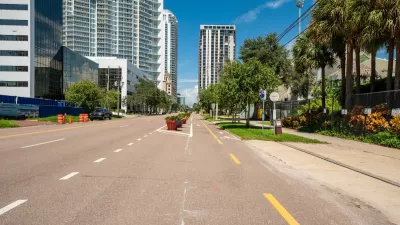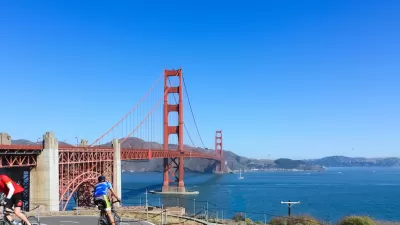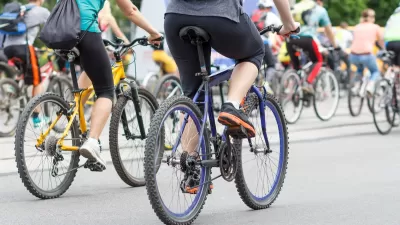Rolling stops by bicyclists get a bad rap, particularly among motorists who perceive them to be breaking the law. But new research shows laws that allow for rolling stops for cyclists do not lead to unsafe behavior by either group.

According to a study out of Oregon State University, “Laws that let bicyclists treat stop signs as yield signs lead neither riders nor motorists to act unsafely,” according to a new story out of the university’s newsroom. According to the study’s leader, David Hurwitz, the findings are important as more and more states consider bicycling rolling-stop legislation. Rolling stop advocates say rolling stops allow riders to keep their momentum through intersections — where nearly half of all bicycle-car crashes happen — “theoretically reducing intersection congestion and crash risk because the cyclists are getting through the intersection faster,” the article explains.
The project was conducted by the OSU College of Engineering and used a “novel experimental technique” of linking separate bicycle and motor vehicle simulators, running 60 subjects in pairs simultaneously, and having each subject interact with an avatar of the other in a virtual world. The pairs went through 16 “live-interaction scenarios related to a bicyclist and motorist encountering one another at a four-way, stop-controlled intersection, according to the article. Study lead Hurwitz said they evaluated safety-relevant behaviors associated with laws stemming from the “Idaho stop,” which was passed in 1982 but largely ignored around the country until 2017 when seven states enacted bicycle rolling stop laws.
“The focus of previous research has been crash-data analysis and why riders are motivated to do a rolling stop even when it’s illegal in their state … No one has looked at how well bicycle rolling-stop laws work, or what happens when you educate people about them. Our networked simulator study design let us evaluate driver and rider behavior and their understanding of the law,” Hurwitz told the Oregon State University Newsroom. Their findings also indicate outreach and education about rolling stops would be useful: After receiving education about rolling-stop laws, Hurwitz said bicyclists preferred to yield rather than stop and went through intersections faster, while drivers approached intersections either more slowly or at a similar speed instead of becoming aggressive toward cyclists they would have previously perceived as breaking the law.
FULL STORY: Bicycle rolling-stop laws don’t lead to unsafe behavior by riders or motorists, research shows

Alabama: Trump Terminates Settlements for Black Communities Harmed By Raw Sewage
Trump deemed the landmark civil rights agreement “illegal DEI and environmental justice policy.”

Study: Maui’s Plan to Convert Vacation Rentals to Long-Term Housing Could Cause Nearly $1 Billion Economic Loss
The plan would reduce visitor accommodation by 25% resulting in 1,900 jobs lost.

Planetizen Federal Action Tracker
A weekly monitor of how Trump’s orders and actions are impacting planners and planning in America.

Waymo Gets Permission to Map SF’s Market Street
If allowed to operate on the traffic-restricted street, Waymo’s autonomous taxis would have a leg up over ride-hailing competitors — and counter the city’s efforts to grow bike and pedestrian on the thoroughfare.

Parklet Symposium Highlights the Success of Shared Spaces
Parklets got a boost during the Covid-19 pandemic, when the concept was translated to outdoor dining programs that offered restaurants a lifeline during the shutdown.

Federal Homelessness Agency Places Entire Staff on Leave
The U.S. Interagency Council on Homelessness is the only federal agency dedicated to preventing and ending homelessness.
Urban Design for Planners 1: Software Tools
This six-course series explores essential urban design concepts using open source software and equips planners with the tools they need to participate fully in the urban design process.
Planning for Universal Design
Learn the tools for implementing Universal Design in planning regulations.
Caltrans
Smith Gee Studio
Institute for Housing and Urban Development Studies (IHS)
City of Grandview
Harvard GSD Executive Education
Toledo-Lucas County Plan Commissions
Salt Lake City
NYU Wagner Graduate School of Public Service





























